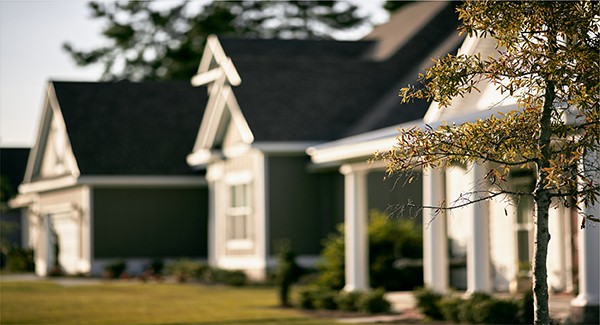I recently spoke at a seminar regarding fiduciary responsibility of Board members. During the seminar, I explained the different legal requirements of Board members, depending on whether they serve on a Board for a condominium, townhouse or homeowners association. I inquired as to how many Board members present resided in a condominium, townhouse or homeowners association.I found that several people in the audience believed that they lived in a certain type of association based upon the structure of the buildings. Owners who lived in a townhouse-style structure believed that they were not in a condominium association. They thought that condominium associations consisted of high-rise buildings like those found on Lake Shore Drive in Chicago.
In response I explained that the physical structure of the building does not define whether your Association is a condominium, townhouse or homeowners association. The way to tell is to review the Declaration of Covenants, Conditions and Restrictions for your Association. In the first few pages of the documents there should be a section entitled “Recitals”. If the Association is a condominium, the Recitals should state that the building and property are subject to the provisions of the Illinois Condominium Property Act (“Act”). If it does not, your Association is generally not a condominium association.
Further, under the Act, the name of the Association must contain the word “condominium”. For instance, if your Association is called ABC Townhome Condominium Association, your Association is most likely a townhouse style association which is a condominium under Illinois law. However, I have reviewed several Declarations which are submitted to the Act which do not have the word “condominium” in the name of the association. In these situations, I believe the association is still a condominium and the name of the association should be amended to add in the word “condominium”. (If you would like a free copy of the Act, please contact me.)
If you serve on the Board of Directors of an Association it is imperative that you understand whether your Association is a condominium association or a common interest community which is essentially a fancy term for an association which is not a condominium, i.e., townhouse or homeowners association. The reason being is that all provisions of the Act apply to all condominium associations in Illinois. The Act is State law, which must be followed by all Board members in administering the affairs of the Association. As you may recall from a recent article, provisions in an Association’s Declaration which are contrary to the provisions of the Act are generally void and unenforceable. You can imagine the problems that are created when a Board relies on provisions in a Declaration which are no longer valid.
If you live in a common interest community (a non-condominium association), generally only Sections 18.5(c)-(h) of the Act apply to your Association and the Board must rely heavily on the provisions of the Declaration for your Association. Similar problems can occur if the Board relies on provisions of the Act which apply only to condominiums and your Association is a common interest community.
Aside from the laws which apply to your Association, there are different types of ownership issues, depending on the type of Association you live in. In a condominium association, the owner has fee simple ownership of the unit and a percentage of ownership in the common elements. In a townhouse or homeowners association, the owner generally has fee simple ownership of the entire structure in which the owner resides, including the exterior and the land which the building is constructed on.
In retrospect, this should have been my first article on Association law. A number of previous articles have made distinctions between responsibilities for Board members which depended on the type of Association. In fact, the first question I always ask a new client is whether they are on the Board of, or manage a condominium, townhouse or homeowners association. If you are unsure, please call your managing agent or attorney.
Originally published as Pioneer Press (June 2000).
Since 1983, KSN has been a legal resource for condominium, homeowner, and townhome associations. Additionally, we represent clients in real estate transactions, collections, landlord/tenant issues, and property tax appeals. We represent thousands of clients and community associations throughout the US with offices in several states including Florida, Illinois, Indiana, and Wisconsin.
If our law firm can be of assistance, please call 855-537-0500 or visit www.ksnlaw.com.
This article is made available by the lawyer or law firm publisher for educational purposes only as well as to give you general information and a general understanding of the law, not to provide specific legal advice. By reading this article you understand that there is no attorney client relationship between you and the article author. This article should not be used as a substitute for competent legal advice from a licensed professional attorney in your state. © 2023 Kovitz Shifrin Nesbit, A Professional Corporation.

